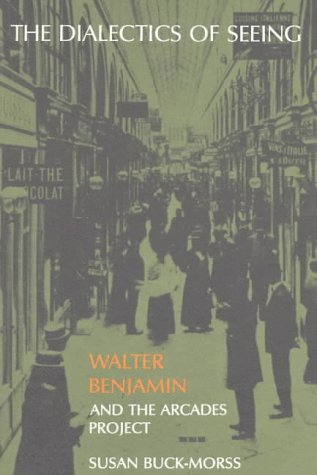Ariel Dorfman, Armand Mattelart: How to Read Donald Duck: Imperialist Ideology in the Disney Comic (1972–) [ES, IT, EN, PT, TR]
Filed under book | Tags: · capitalism, colonialism, comics, cultural criticism, entertainment, ideology, literary criticism, marxism, political theory, politics

How to Read Donald Duck is a Marxist political analysis by Ariel Dorfman and Armand Mattelart on what they perceive is cultural imperialism in popular entertainment, published in Chile in 1972. Written in the form of essay (or, in the authors’ words, a “decolonization manual”), the book is an analysis of mass literature, specifically the Disney comics published for the Latin American market. It is one of the first social studies of entertainment and the leisure industry from a political-ideological angle, and the book deals extensively with the political role of children’s literature. (from Wikipedia)
First published by Ediciones Universitarias de Valparaíso, Chile, 1972
First published in English in 1975
Translated and with an Introduction by David Kunzle
With Appendix by John Shelton Lawrence
Publisher International General, New York, 1991 (Fourth printing)
ISBN 0884770370
119 pages
via Quaxo Coricopat
An interview with Mattelart in which he shortly discusses the book (2008, in English)
2012 project for appropriation of the book (includes its online edition)
Para leer al Pato Donald. Comunicación de masa y colonialismo (Spanish, 18th ed., 1972/1979)
Come leggere Paperino. Ideologia e politica nel mondo di Disney (Italian, trans. Gianni Guadalupi, 1972, added on 2023-7-31)
How to Read Donald Duck: Imperialist Ideology in the Disney Comic (English, trans. David Kunzle, 1975/1991, 10 MB, updated 2015-5-10)
Para ler o Pato Donald: comunicação de massa e colonialismo (Portuguese, trans. Álvaro de Moya, 2nd ed., 1976/1980)
Emperyalist Kültür Sanayii ve Walt Disney: Vakvak Amca Nasıl Okunmalı? (Turkish, trans. Atilla Aksoy, 1977)
Susan Buck-Morss: The Dialectics of Seeing: Walter Benjamin and the Arcades Project (1989–) [English, Spanish]
Filed under book | Tags: · 1800s, advertising, bourgeoisie, city, commodification, critical theory, cultural criticism, fashion, flaneur, history, literary criticism, literature, paris, photography, poetry

“Walter Benjamin‘s magnum opus was a book he did not live to write. In The Dialectics of Seeing, Susan Buck-Morss offers an inventive reconstruction of the Passagen-Werk, or Arcades Project, as it might have taken form.
Working with Benjamin’s vast files of citations and commentary which contain a myriad of historical details from the dawn of consumer culture, Buck-Morss makes visible the conceptual structure that gives these fragments philosophical coherence. She uses images throughout the book to demonstrate that Benjamin took the debris of mass culture seriously as the source of philosophical truth.
The Paris Arcades that so fascinated Benjamin (as they did the Surrealists whose “materialist metaphysics” he admired) were the prototype, the 19th century ‘ur-form’ of the modern shopping mall. Benjamin’s dialectics of seeing demonstrate how to read these consumer dream houses and so many other material objects of the time—from air balloons to women’s fashions, from Baudelaire’s poetry to Grandville’s cartoons—as anticipations of social utopia and, simultaneously, as clues for a radical political critique.
Buck-Morss plots Benjamin’s intellectual orientation on axes running east and west, north and south—Moscow Paris, Berlin-Naples—and shows how such thinking in coordinates can explain his understanding of ‘dialectics at a standstill’. She argues for the continuing relevance of Benjamin’s insights but then allows a set of “afterimages” to have the last word.”
Publisher MIT Press, 1989
Studies in Contemporary German Social Thought Series
ISBN 0262022680
493 pages
Reviews: Shierry Weber Nicholsen (New German Critique, 1990), Robert Tobin (Phil and Lit, 1991), James L. Gussen (Germanic Review, 1992), Erika Berroth (J Germanic Linguistics, 1994), Beste Alpay (Montréal Review, 2011).
Publisher (EN)
The Dialectics of Seeing: Walter Benjamin and the Arcades Project (English, 22 MB, updated on 2019-12-3)
Dialectica de la mirada: Walter Benjamin y el proyecto de los Pasajes (Spanish, trans. Nora Rabotnikof, 1995, updated on 2013-5-2)
Walter Benjamin: Early Writings, 1910-1917 (2011)
Filed under book | Tags: · 1910s, art criticism, cultural criticism, literary criticism, literature, poetry

“Walter Benjamin became a published writer at the age of seventeen. Yet the first stirrings of this most original of critical minds—penned during the years in which he transformed himself from the comfortable son of a haute-bourgeois German Jewish family into the nomadic, uncompromising philosopher-critic we have since come to appreciate—have until now remained largely unavailable in English. Early Writings, 1910-1917 rectifies this situation, documenting the formative intellectual experiences of one of the twentieth century’s most resolutely independent thinkers.
Here we see the young Benjamin in his various roles as moralist, cultural critic, school reformer, and poet-philosopher. The diversity of interest and profundity of thought characteristic of his better-known work from the 1920s and 30s are already in evidence, as we witness the emergence of critical projects that would occupy Benjamin throughout his intellectual career: the role of the present in historical remembrance, the relationship of the intellectual to political action, the idea of truth in works of art, and the investigation of language as the veiled medium of experience.
Even at this early stage, a recognizably Benjaminian way of thinking comes into view—a daring, boundary-crossing enterprise that does away with classical antitheses in favor of the relentlessly-seeking critical consciousness that produced the groundbreaking works of his later years. With the publication of these early writings, our portrait of one of the most significant intellects of the twentieth century edges closer to completion.”
The book is a translation of selections from Walter Benjamin, Gesammelte Schriften, 1972-1989, Suhrkamp Verlag
Translated by Howard Eiland and Others
Publisher Belknap Press of Harvard University Press, Cambridge/MA and London, 2011
ISBN 0674049934, 9780674049932
303 pages
Benjamin at Monoskop wiki
publisher

